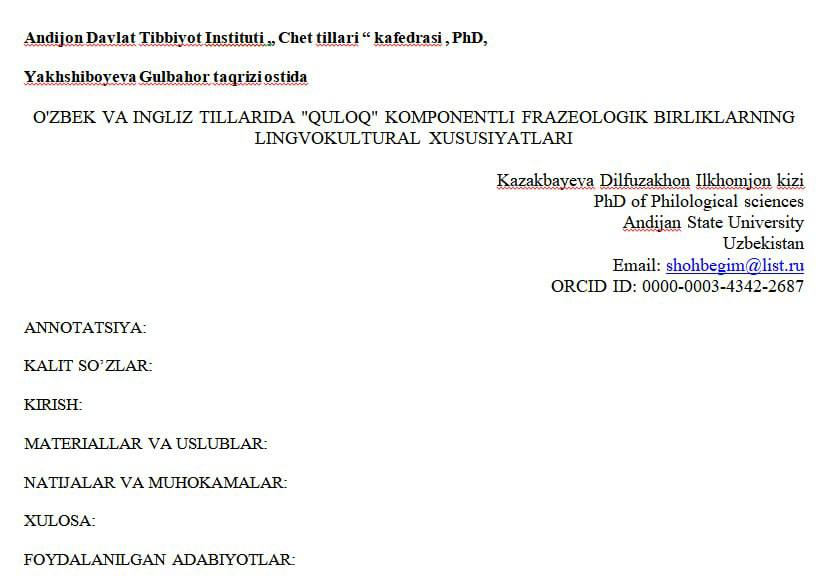ORGANIZATION OF CHEMISTRY LESSONS IN SECONDARY SCHOOLS THROUGH VARIOUS DIDACTIC GAMES
O'zbekiston-Finlandiya pedagogika instituti Tabiiy fanlar fakulteti kimyo kafedrasi mudiri, t.f.n., PhD, dots., Bobojonov Jamshid Shermatovich taqrizi ostida
Keywords:
Chemistry, secondary schools, didactic games, active learning, educational games, lesson planning.Abstract
This article explores the utilization of didactic games as a pedagogical approach for organizing chemistry lessons in secondary schools. With a growing emphasis on active learning and student engagement, educators are increasingly incorporating interactive and experiential methods into their teaching practices. Didactic games offer a dynamic platform to enhance student participation, reinforce concepts, and foster a deeper understanding of chemistry principles. By integrating games into lesson planning, educators can create immersive learning experiences that promote critical thinking, problem-solving, and collaboration among students. This abstract provides an overview of the benefits and strategies for incorporating didactic games into chemistry instruction, highlighting the importance of leveraging gamified approaches to enrich the learning environment in secondary school classrooms. Chemistry education plays a vital role in preparing students for careers in science and technology. However, traditional teaching methods often fail to capture students' attention and promote deep understanding of the subject. In order to overcome this challenge, innovative teaching methods are needed to revolutionize chemistry education. This article explores the use of gamified lesson planning and active learning strategies to enhance student engagement and concept mastery in chemistry classrooms.
References
Rahima Vahobovna Tashmatova, Ilyos Xakimovich Ruziev, Maftuna Akramovna Tog’ayeva; “Kimyo darslarida ishbilarmonlik o’yinlaridan foydalanish” Oriental renaissance: Innovative, educational, natural and social sciences, 2021, 153-158.
R.V.Tashmatova, I.X.Ruziyev, A.N.Mukhamadiev, K.E.Bebitova, Z.V.Xurramova; “COMMENTS ON THE USE OF DIDACTIC GAMES IN CHEMISTRY LESSONS” World Bulletin of Social Sciences 2023/4/17 pages: 131-133
Salimova G. B. Ruziev I. Kh., Ergashev E. Yu., Erkinova G. A.; “USING THE CASE METHOD IN TEACHING CHEMISTRY” International Journal of Studies in Advanced 2023/5/5 pages: 58-61
Karimova Dilovar Batirovna “THE USE OF GAMING TECHNOLOGIES IN TEACHING CHEMISTRY” Open Access Repository 2023/11/26 pages:99-104
I.X.Ruziev, A.Sh.Saidov, T.V.Rabanakulov, R.S.Shodieva “APPLICATION OF DIDACTIC BUSINESS GAMES IN CHEMISTRY LESSONS THEIR” Open Access Repository, 2023/2/28, 166-171.
S.I.Badalova, Q.U.Komilov, A.J.Kurbanova “Case technology in chemistry lessons” Academic Research in Educational Sciences, 2020, 262-265
M.E.Qurbonova “Professional-oriented educational output in the teaching of chemistry” Eurasian Journal of Learning and Academic Teaching, 2022(5), 85-87.
Dilovar Karimova, Yulduzxon Karimova, “Kimyo fanini o’qitishda keys texnologiyasidan foydalanish” Interpretation and researches, 2023/5/27, 1-3.














